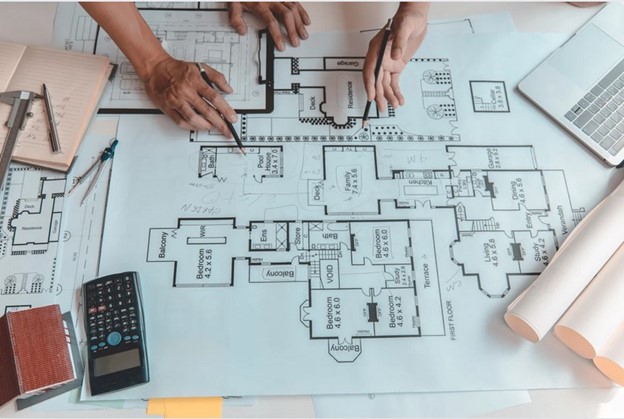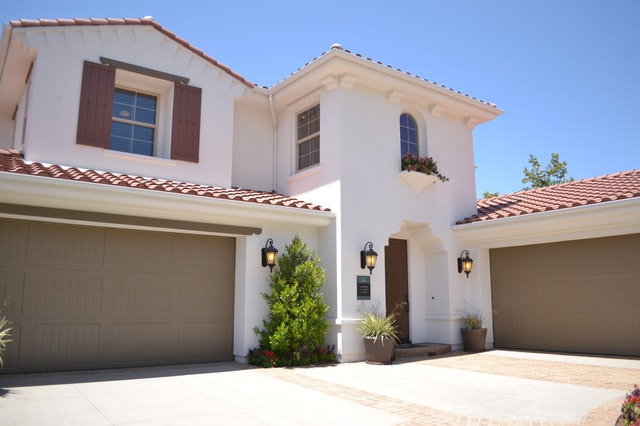 Last week’s scheduled economic news includes readings on inflation, new home sales, pending home sales, and consumer sentiment. Federal Reserve Chair Jerome Powell spoke at a banking conference in Spain. Weekly reports on mortgage rates and jobless claims were also released.
Last week’s scheduled economic news includes readings on inflation, new home sales, pending home sales, and consumer sentiment. Federal Reserve Chair Jerome Powell spoke at a banking conference in Spain. Weekly reports on mortgage rates and jobless claims were also released.
New Home Sales Rise as Pending Home Sales Fall
May readings for new and pending home sales showed mixed results for May. 763,000 new home sales were expected on a seasonally-adjusted annual basis. Analysts expected a reading of 675,000 sales based on April’s year-over-year reading of 680,000 new home sales. May’s increase in new home sales was the largest since February 2022.
New home sales increased for the third consecutive month. The supply of new homes for sale fell 11.80 percent between April and May to a 7-month supply of new homes available. Sales were strongest in the Northeast and West.
Pending home sales fell by -2.70 percent in May.
Mortgage Rates, Jobless Claims
Freddie Mac reported higher average mortgage rates last week. The average rate for 30-year fixed-rate mortgages rose by four basis points to 6.71 percent; the average rate for 15-year fixed-rate mortgages rose by three basis points to 6.06 percent.
Federal Reserve Chair Jerome Powell spoke at a banking conference in Spain. He discussed the U.S. economy and how the Fed addressed the financial downturn after the Great Recession and discussed current economic trends including the impact of higher mortgage rates on the housing sector and low unemployment.
Chair Powell also outlined the Fed’s goal of reducing inflation to 2.00 percent a year; it presently runs near 4.00 percent. Mr. Powell cited headwinds to lowering inflation including tighter credit requirements for individuals and businesses. Mr. Powell cautioned that further tightening may result from bank stresses that occurred in March.
June’s consumer sentiment index reading was nearly unchanged with an index reading of 64 for June as compared to May’s reading of 63.99. Index readings over 50 indicate that most consumers are confident about current economic conditions.
What’s Ahead
This week’s scheduled economic reports include readings on construction spending, public and private sector employment, and minutes of June’s Federal Open Market Committee meeting. Weekly reports on mortgage rates and jobless claims will also be released.
 Making the decision to build a home might be one of the biggest you make in your life. You’ve found the perfect plot of land and have a vision of what type of home you want, but you need someone to bring your dream to life.
Making the decision to build a home might be one of the biggest you make in your life. You’ve found the perfect plot of land and have a vision of what type of home you want, but you need someone to bring your dream to life. April readings for S&P Case-Shiller’s Housing Market Indices showed gains in home prices throughout the U.S. Rising prices were caused by shortages of previously-owned homes for sale and increasing buyer demand as the average 30-year mortgage rate exceeded six percent. The southeastern region lost its top spot on S&P Case-Shiller’s 20-City Home Price Index as Chicago, Illinois, Atlanta, Georgia, and Tampa, Florida held the top three year-over-year home price growth rates for April.
April readings for S&P Case-Shiller’s Housing Market Indices showed gains in home prices throughout the U.S. Rising prices were caused by shortages of previously-owned homes for sale and increasing buyer demand as the average 30-year mortgage rate exceeded six percent. The southeastern region lost its top spot on S&P Case-Shiller’s 20-City Home Price Index as Chicago, Illinois, Atlanta, Georgia, and Tampa, Florida held the top three year-over-year home price growth rates for April. Moving to a new home can be a stressful time for both you and your dog. Dogs are creatures of habit, and a new environment can be overwhelming for them. However, with the right approach, you can help your dog adjust to their new home smoothly.
Moving to a new home can be a stressful time for both you and your dog. Dogs are creatures of habit, and a new environment can be overwhelming for them. However, with the right approach, you can help your dog adjust to their new home smoothly. Inflation can erode the value of your savings over time, and one way to hedge against inflation is by investing in assets that appreciate in value over time. Real estate is often considered a good hedge against inflation, as property values tend to rise in line with inflation.
Inflation can erode the value of your savings over time, and one way to hedge against inflation is by investing in assets that appreciate in value over time. Real estate is often considered a good hedge against inflation, as property values tend to rise in line with inflation. Last week’s scheduled economic reports included readings on housing starts, existing home sales, and Federal Reserve Chair Jerome Powell’s congressional testimony. Weekly readings on mortgage rates and jobless claims were also released.
Last week’s scheduled economic reports included readings on housing starts, existing home sales, and Federal Reserve Chair Jerome Powell’s congressional testimony. Weekly readings on mortgage rates and jobless claims were also released.